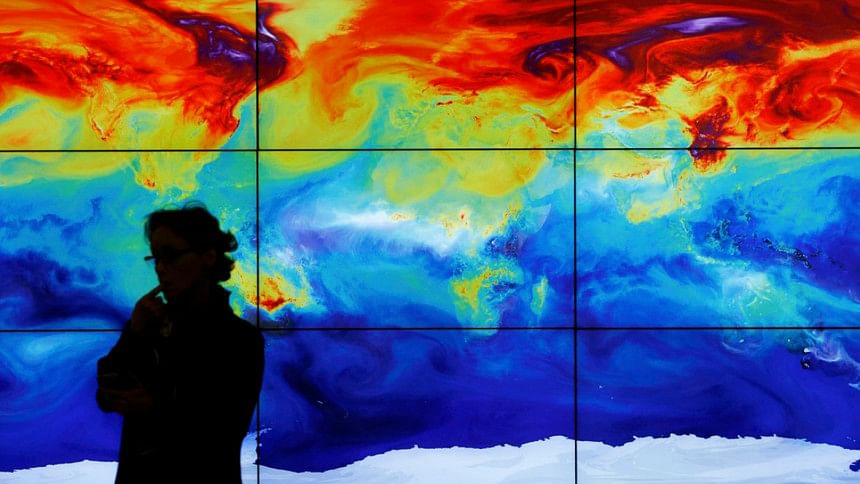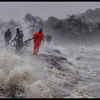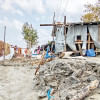Bangladesh among 7 extreme climate change hotspots: Report

Bangladesh and six other countries are the most extreme climate change hotspots in the world, according to a report of The Guardian.
Other countries are - Spain, Malawi, Norway, Brazil, US and Philippines.
The report, titled 'From heatwaves to hurricanes, floods to famine: seven climate change hotspots,' gives a subjective appraisal of the seven most important climate hotspots, including Dhaka, Bangladesh, based on analysis of numerous scientific models and personal experience of observing climate change in a variety of places.
The Guardian report quotes, Saleemul Huq, director of the Bangladesh-based International Centre for Climate Change and Development as saying, "In the next 20 years we would expect five to 10 million people to have to move from the coastal areas. The whole country is a climate hotspot, but the most vulnerable area is the coast. Dhaka is the place where people head to."
Huq, who has advised the Bangladesh government at successive UN climate summits, says there is strong evidence that climate change is now impacting Dhaka, reports The Guardian.
"Temperatures have already gone up by 1C. We can see that the weather patterns have changed. Ask anyone in the street, and they will say the frequency of floods has changed. Bangladesh has a long history of floods, but what used to be a one-in-20-year event now happens one year in five. It is what we would expect with climate change models," Huq says.
Huq and other Bangladeshi climate scientists expect to see more extremes. "Changing rain patterns suggest we will not get more rain over the coming years but it will be distributed differently, with less in the dry season and more during the monsoons. Paradoxically, this will lead to more floods and droughts, and heavier monsoons," he says.
"We are beginning to see sea levels rising and increased salinity in coastal areas. It is a slow onset, which will get worse. It is a climate change phenomenon and not something we had before."
Huq leads research into how Bangladesh can adapt to climate change. "We've done a lot of research looking at the most vulnerable hotspots. We are learning by doing," he says. "Government has now invested in a major climate change action plan. To counter coastal salinity there is a big program of rainwater harvesting and coastal protection. Scientists are developing saline-tolerant rice. People and government are proactive.
"The trouble is that we are always catching up with the problem. There is a limit to what we can grow. At some point we will run out of options, then people will have to move. We know that if we don't take action people will all end up in Dhaka, so [we] need to invest in other towns and cities."
But the bottom line is that climate hotspots intersect, and nowhere will we escape the changes taking place. What happens in the Amazon affects West Africa; the North American growing season may depend on the melting of Arctic ice; flooding in Asian cities affected by warming on the high Tibetan plateau. And urban areas ultimately depend on the countryside, says The Guardian report.
So, we're all in a hot spot now.

 For all latest news, follow The Daily Star's Google News channel.
For all latest news, follow The Daily Star's Google News channel. 








Comments